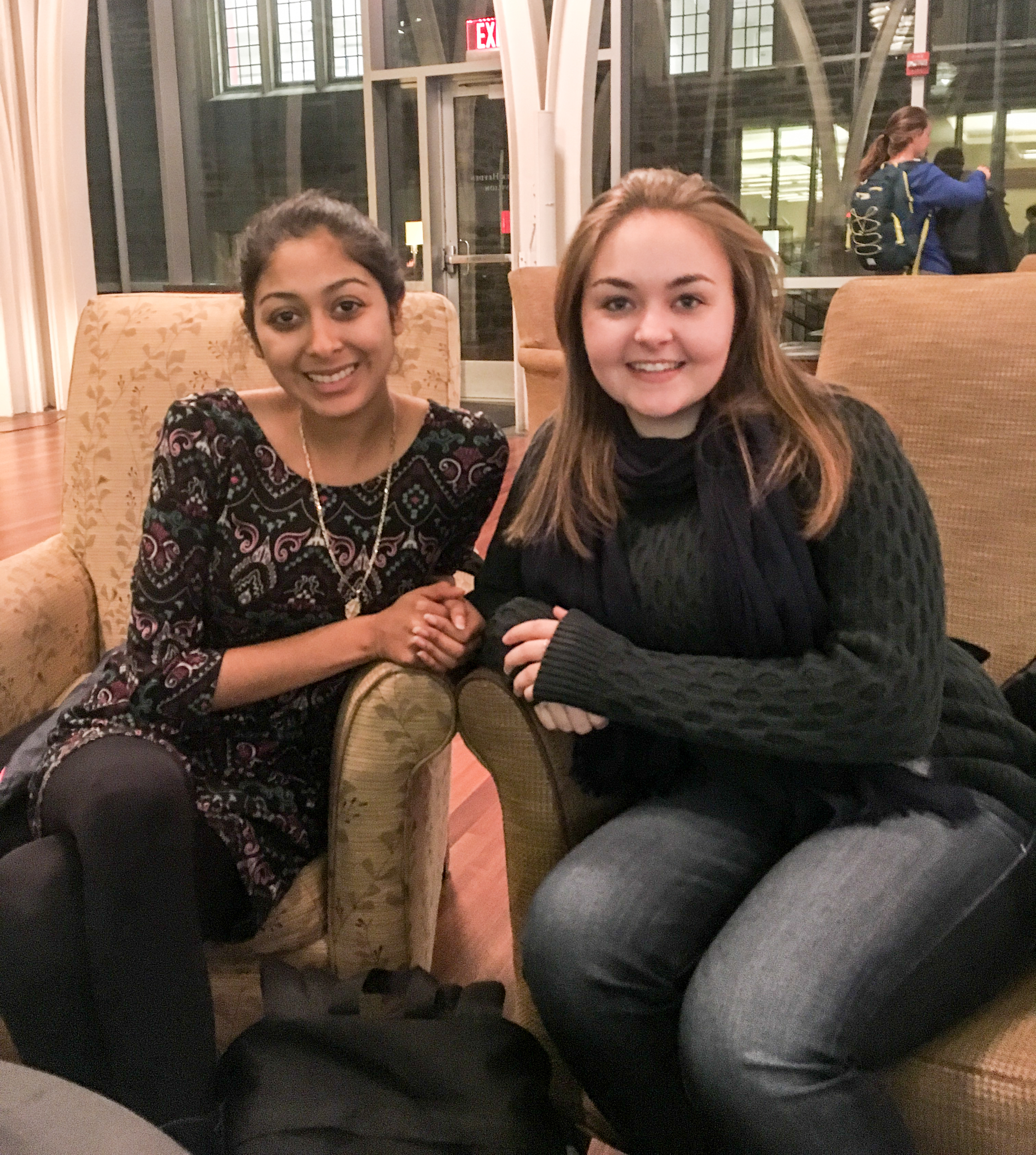From June to August 2016, four Duke students: Emma Heneine, Casey MacDermod, Maria Perez, and Noor Tasnim, packed their bags and traveled to Guatemala. They were participants in the Student Research Training (SRT) Program, studying “indoor air quality, cooking, and bathing habits in Indigenous Mayan households in six villages surrounding Lake Atitlan in Guatemala.”
The poster they presented on their project recently won first place in the Global Health Undergraduate Research Fair.

Maria Perez (left) and Casey MacDermod (right)
The Duke Research Blog caught up with student researchers Maria Perez and Casey MacDermod after the conference. Maria Perez is a senior majoring in International Comparative Studies (ICS) and Global Health; she had research experience prior to traveling to Guatemala. Casey MacDermod is a junior majoring in Cultural Anthropology; she had no research experience in high school or at Duke prior to this experience. MacDermod knew what type of research she was interested in, so she looked through faculty members who did that type, found Dr. David Boyd, met with him, and learned about his SRT team.
Boyd told the students what the focus of the research should be, and the students, “as a team… came up with the questions and how [to] do the research…” Perez said. In order to monitor indoor air pollution, the team measured the small and large particulate matter with an instrument known as Dylos and the carbon monoxide levels with a carbon monoxide monitor.
From January until June, the team conducted background research on air pollution in Durham. At the beginning of June, they traveled to Guatemala and “had about a week of orientation,” said Perez. During this time, they met with on-site assistants who taught them on how to give questionnaires and conduct interviews.
Mostly, the team was self-directed; that was part of the challenge. MacDermod said that, although Boyd was with them “about the first three or four days…” and there were translators (Micaela and Carolina) that “gave us all the information we needed and were with us every step of the way throughout the research,” the student researchers needed to be flexible and able to think on their feet.
Every day, the team of four would split up into two groups with one translator each, then go to a village and do research. They would meet up for lunch and then either head back to their living site or go back into the villages to conduct more research. Based on her observations, MacDermod infers that using wood-burning stoves and temescales, or sweatlodges, caused the particulate matter to be “off the charts.”
The SRT program is part of the Duke Global Health Institute and the students were under the guidance and support of Dr. Boyd, Dr. Craig Sinkinson, Mayan Medical Aid, the primary schools in the municipalities and Bass Connections.
Although their winning poster included some graphs, Perez and MacDermod emphasized that these charts were produced automatically by the apparatus used to monitor air pollution. Further analysis of their data will occur next term.
 Post and photo by Meg Shieh
Post and photo by Meg Shieh
